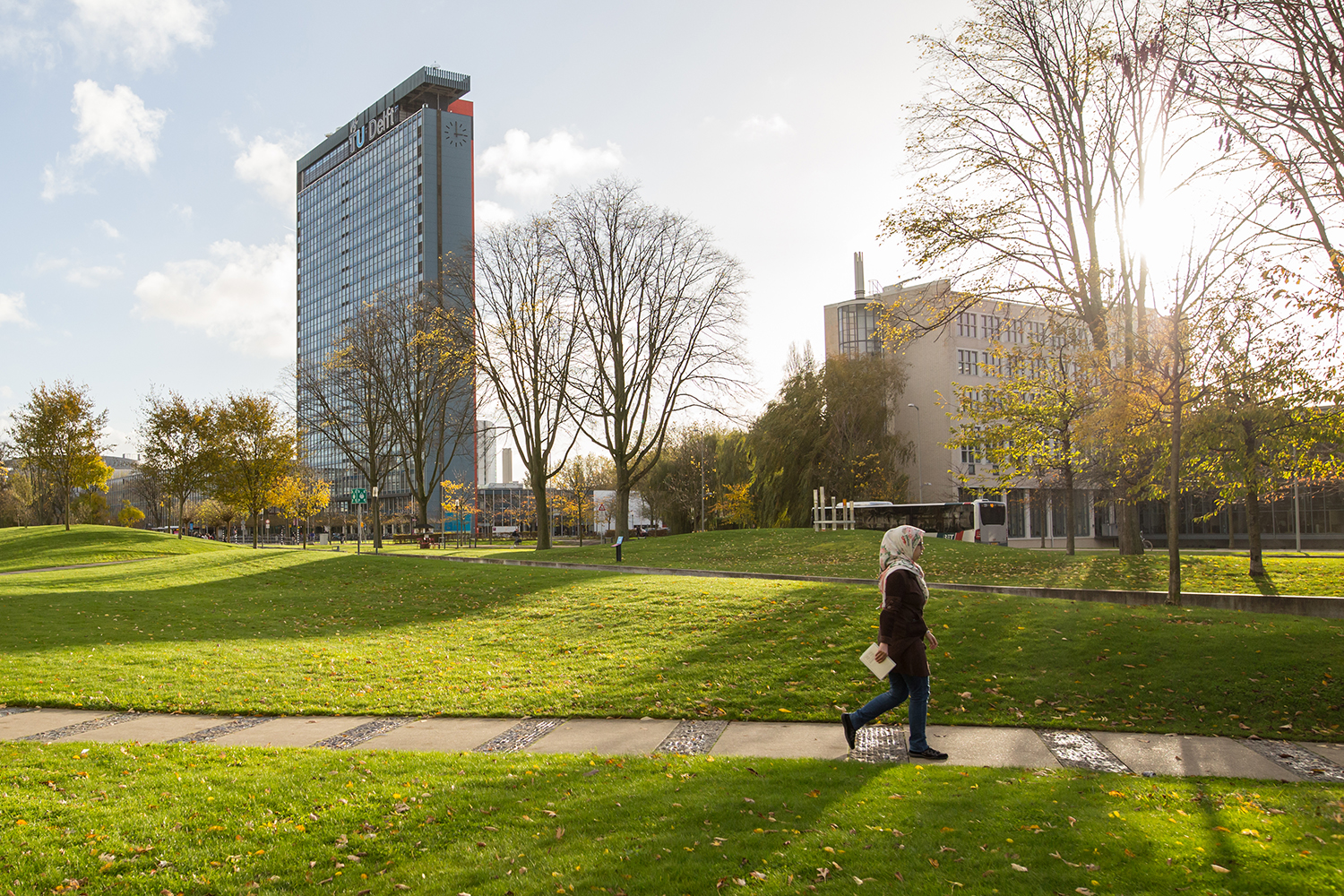TU Delft is introducing a numerus fixus for Computer Science Engineering with effect from the 2019-2020 academic year.
(Photo: Thomas Zwart)
President of the Board Tim van der Hagen and the Student Council discussed an numerus fixus on Wednesday 14 March because of the influx of international students in Computer Science Engineering. The Executive Board is not yet prepared to say how high the numerus fixus will be.
On 15 January – the deadline for students to register for programmes with a numerus fixus – the number of preliminary registrations for Computer Science Engineering (without a numerus fixus) was already over 1,000. Of these, 23 percent had Dutch nationality, 32 percent were from another EU country and 45 percent from outside the EU. As a result of this, TU Delft was forced to take the decision to no longer process registrations received from this last group as from 1 February.
‘Troubling’ consequences
The Student Council wondered how this situation had been allowed to arise, given that they had already drawn attention to it last year. “Then we were told that in 2020 the influx would have grown by ten percent, but now the preliminary registrations have already increased five-fold”, said student council member Carel Wagenaar, referring to the 281 students in 2016.
The Council spoke of this as an error and called the consequences ‘troubling’. “Some legally unacceptable measures have been taken, and the Faculty of EEMCS is feeling stressed. Refusing students should be a last resort to preserve the teaching quality.” For this reason the students advocate setting up a working group for student growth.
‘The world has changed: TU Delft is more visible’
Van der Hagen disputed whether an error had been made. “Universities don’t have any suitable instruments. We thought that the international influx would be gradual, as we have seen in the other programmes. But the world has changed: TU Delft is more visible; we have Brexit, Trump.”
Language requirement is no solution
According to Van der Hagen, there were two things TU Delft could have done: make Dutch a language requirement or introduce a numerus fixus. Dutch as a language requirement is not an option in a field that is so international. “So going back to Dutch is not so good for engineers. Of more concern is that a language requirement does not provide a structural solution. If a thousand Chinese students decide to learn Dutch, the only other instrument open to us is selection via a fixus.”
He feels a numerus fixus is also not an ideal solution. It limits capacity, the university sill receives a large number of registrations and has to select on the basis of quality and motivation, said Van der Hagen. “Whether or not this is desirable? I predict that a numerus fixus means we will have fewer Dutch students than at present.” He meant that if a numerus fixus had been instituted, there would have been fewer Dutch students in the coming academic year than now with the stop on admitting students from outside the European Union.
Ideas?
Van der Hagen said that the Minister had set up a task force, with representatives from the University of Amsterdam and TU Delft, in order to come up with policy before the summer. The Board wants to identify and consider the possibilities, trends and wishes. Although the Student Council has stated its desire to take part in a sounding board, the Board wants the Council to restrict itself to responding to policy. Van der Hagen wants to invite students, staff and alumni to contribute their ideas.
Update 19 maart:
In this article we have added an explanation of the quote by Tim van der Hagen in which he predicts that there would be fewer Dutch students with a numerus fixus than now. To avoid confusion about this, the headline and the second line of the article have been adjusted.
Do you have a question or comment about this article?
c.j.c.vanuffelen@tudelft.nl


Comments are closed.